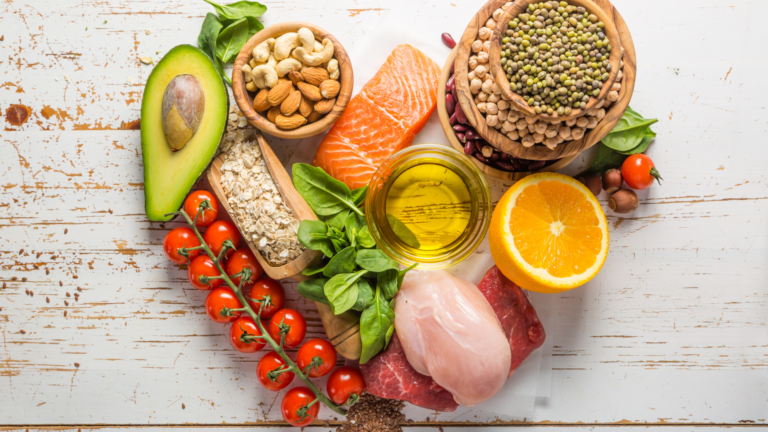My gut: something is wrong.
Me: what is it?
My gut: something
Me: can you me more specific?
My gut: S O M E T H I N G
It’s well known that if you have IBS food choices can have a profound impact on gut symptoms. If fact, if you’re living with IBS, its likely you have encountered a multitude of well-intentioned advice on what you “should” or “shouldn’t” eat to alleviate resolve your symptoms. If only it were this simple. The reality is, we are all unique, and so are our digestive systems. What proves effective for one person may wreak havoc for another. The good news is that there is more than one option. In this article, we first touch on what IBS actually is, before delving into five of the most common approaches that we use regularly to successfully help individuals overcome digestive issues and start enjoying food again.
What is IBS?
IBS is essentially chronic pain emanating from the digestive system. It’s characterized by ongoing abdominal pain and changes in bowel movements without a discernible medical explanation i.e. test results all appear normal, but your gut is not on board. The good news is that IBS isn’t about physical damage. IBS is actually about the sensitivity of nerves in the gut and the gut-brain axis. People with IBS have hypersensitive nerves that over collect information and over communicate this information with the brain. The brain get concerned about this and generates symptoms like gas, bloating, pain, and altered bowel movements. While numerous evidenced-based approaches exist, the key is finding what fits your body rather than squeezing into a cookie cutter solution.
The Goal of Treating IBS
Although IBS doesn’t damage your body or shorten your lifespan, its impact on mental health and quality of life can be profound. The goal of treatment is to minimise symptoms and improve your quality of life. In many cases dietary modifications can be life changing.
Ready for a personalized approach? Book an appointment with one of our specialist dietitians.
The Low FODMAP Diet
The low FODMAP diet is the most well-known and most well researched diet for IBS. It has been shown to help about 50-80% of people find relief from gut symptoms. FODMAPs are type of carbohydrates that are poorly digested. Instead of being absorbed into the body, they continue their path along the digestive tract to the colon (large intestine) where they are rapidly fermented creating gas, and attract water resulting in loose or watery stool.
The low FODMAP diet isn’t actually a long-term diet. Instead, it’s a process used to identify your tolerances and thresholds for each of four FODMAP groups. While IBS symptoms reduce quality of life, over restricting food choices also reduces quality of life. The best diet for anyone is always going to be the most liberal diet possible, so you really only limit what is necessary and does actually improve your quality of life.
Foods that contain FODMAPs include wheat, onion, garlic, legumes, milk, yoghurt, apples, stone fruit, honey, mushrooms and cauliflower. In some people, these foods tend to stimulate digestive upset about 4-24 hours after eating them. If this fits with your experience, then a trial of a low FODMAP diet may be right for you.
The RPAH Diet
Less known than the low FODMAP diet, the RPAH diet targets naturally occurring food chemicals; Salicylates, Amines, and Glutamates. It is thought that these foods either contain histamines or liberate histamines in the body. If you have a threshold for these, the increase in histamines may trigger a range of symptoms potentially affecting your gut, your skin, your airways or even neurological symptoms. While some people experience symptoms in all of these areas, others may experience any combination of symptoms from only some of these body systems.
Foods that contain food chemicals include tomatoes (especially tomato-based sauces), capsicum, strawberries, onions, mushrooms, honey, avocado, chocolate, slow cooked pork, prawns, vegemite, aged cheeses and sourdough bread. If any of these foods trigger you, or you get symptoms beyond the gut like rash, hives, sinus congestion, headaches/migraines, brain fog or fatigue then investigating your threshold for food chemicals may give you the best results.
The Mediterranean Diet
The Mediterranean diet is the newcomer on the scene. In November 2023 a clinical trial was published that showed that a Mediterranean diet improves both gastrointestinal symptoms and psychological symptoms in people with IBS. This diet is inclusive rather than restrictive and offers a board range of food options. The Mediterranean diet is high in fruit, vegetables, legumes, nuts, seeds, olive oil and fish. It also includes red wine, small amounts of dairy and chicken. Red meat and processed foods are allowed but are not considered everyday foods.
The Mediterranean diet may be the best option for you if:
- You do not want to do an elimination diet.
- You are not ready or able to restrict your food choices.
- You have a history of a troubled relationship with food like anorexia, bulimia or ARFID.
- You have mental health concerns like anxiety or depression.
- You also have a medical condition like high cholesterol heart disease, diabetes or fatty liver.
Whole Food Sensitivity
It’s clearly evident that what science knows about food triggers for IBS is really just the tip of the iceberg. In some cases, people are sensitive to whole foods with wheat (in the absence of coeliac disease), dairy or soy being the most common, although we do also see other random food sensitivities too (I can’t eat oats). In many cases, an elimination diet like the low FODMAP or RPAH diet removes enough background noise, and these become more obvious.
Empirical Options
The really good news is that some people don’t actually need a diet at all and a few little tweaks that directly address symptoms is enough to improve things. Things like kiwifruit or chia seeds daily for constipation, a soluble fibre for diarrhoea, gut-directed hypnotherapy or a targeted supplement can be surprisingly effective. Often, we will trial a few of these options first as a plan A and then move to plan B only if necessary.
Final Thoughts
While dietary modifications can be life-changing for IBS, food is more than nutrition. Food is about pleasure, connection, memories, celebrations, and commiserations. Managing IBS with food is ultimately about improving the quality of life, whether by choosing not to eat a certain food or choosing to enjoy the food and be part of the party, even if you know you have a threshold for the food. As dietitians who specialise in IBS we can support you to plan the best approach for you to pinpoint your triggers and identify strategies to improve your tolerance.
Ready to take the next step in managing your IBS? Book an appointment with one of our specialist dietitians to embark on a personalized journey toward digestive well-being.







